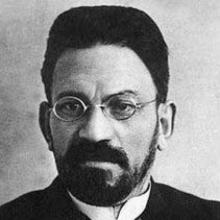The Beilis Affair: A Tragic Chapter in Jewish History
On September 25, 1913, the trial of Menahem Mendel Beilis began in Kiev, Ukraine. Beilis, a Jewish superintendent employed at a brick factory, was accused of murdering a young Ukrainian boy named Andrei Yushchinsky in a gruesome blood ritual. This trial became a landmark event in Jewish history, exposing the virulent antisemitic forces at play in the Russian Empire and sparking international outrage against this grave injustice.
The Antisemitic Forces at Play
Despite the lack of hard evidence against Beilis, the government prosecution turned to the age-old blood ritual canard, an insidious antisemitic myth that falsely accused Jews of murdering non-Jews to use their blood in religious rituals. The Black Hundreds, a notoriously antisemitic organization, also fueled the fire by calling for a pogrom against the Jewish population in retaliation for the boy’s death.
The Fierce Opposition that Aros
Beilis, who had an airtight alibi and had been working at the time of the murder, steadfastly maintained his innocence throughout his imprisonment and trial. Jewish and non-Jewish lawyers worked together on his defense, and an international outcry condemned the antisemitic prosecution of a man that Russian authorities knew was innocent. The defense called on Moscow Rabbi Iakov Maze, whose testimony exposed the prosecution’s so-called expert as entirely ignorant about the Talmud and Jewish religious ritual.
The Outcome of the Trial
After a month-long trial, the all-Christian jury found Beilis not guilty. Investigations had already found substantial evidence that the murder of Yushchinsky had been the work of a criminal outfit known as the Cherbiak Gang. Beilis was finally exonerated, but his life had been forever changed by this traumatic experience.
The Legacy of Mendel Beilis
Beilis moved to Palestine after his exoneration, but economic misfortunes led him to reluctantly emigrate to the United States in 1921. He published a memoir in Yiddish titled “The Story of My Sufferings” in 1925. His story loosely formed the basis for Bernard Malamud’s prize-winning novel, “The Fixer,” published in 1966. However, Malamud acknowledged that his work of fiction radically altered the events and historical personages who played a role in the Beilis Affair.
The Beilis Affair: An Ongoing Reminder of the Need for Justice and Tolerance
The Beilis Affair remains a tragic chapter in Jewish history, a reminder of the need for vigilance against antisemitism and the importance of speaking out against injustice. Beilis’s story serves as a powerful testament to the resilience of the Jewish people in the face of discrimination and persecution. It also highlights the critical role that allies and advocates play in the fight for social justice and equality for all.
Resources
https://yivoencyclopedia.org/article.aspx/Beilis_Mendel












